Barbara Corcoran, Dave Ramsey and 6 Other Experts on When and How To Borrow Money

It’s a question we all wonder about: Should you borrow money to pursue your goals? Or is it better to avoid debt and pay with cash, even if it takes longer to improve your financial situation?
The answer depends on whom you ask. Some experts are OK with debt as long as it serves a specific purpose. Others say to avoid debt at all costs.
Check Out: Warren Buffett’s 6 Best Pieces of Money Advice for the Middle Class
Learn More: How To Get $340 Per Year in Cash Back on Gas and Other Things You Already Buy
Below, you’ll find the opinions of some of the top financial influencers today. Read on to learn what Dave Ramsey, Barbara Corcoran and others have to say about borrowing money.
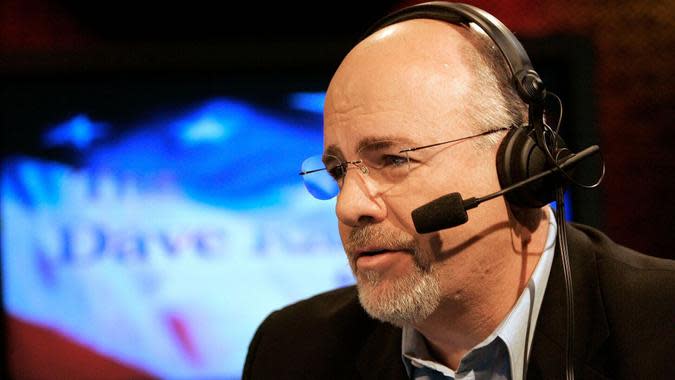
Dave Ramsey
Ramsey’s rule of thumb is that you shouldn’t go into debt for something you can’t afford. He says to just say no to debt, even if it’s offered at 0% interest.
Ramsey recognizes that taking out a loan can fix problems now. But he says the debt will impact you for years to come, and it’s just not worth sacrificing your future for it.
He also says that consolidating debt doesn’t get rid of it and that you don’t need a credit score to be successful. So he’s against loans for consolidation and building credit.
Read More: I’m a Self-Made Millionaire: What Being Broke Taught Me About Keeping Wealth
Find Out: How To Triple Your Savings — 8 Proven Techniques for Financial Success
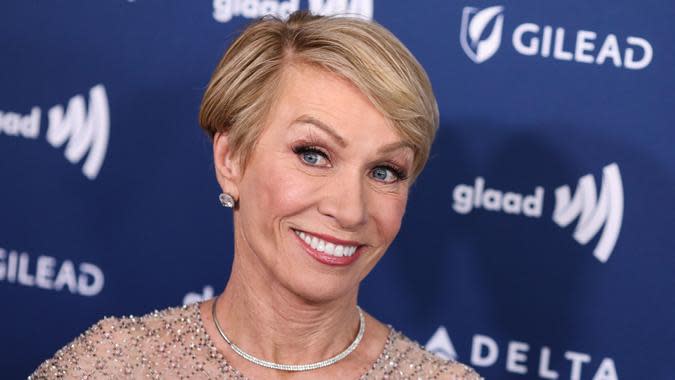
Barbara Corcoran
Corcoran, one of the stars of “Shark Tank,” hasn’t publicly shared her philosophy on when it’s OK to borrow money. But on a recent episode of the “Rachael Ray Show,” she talked about how important it is to pay off money quickly after you’ve borrowed it.
Corcoran especially recommends aggressively paying off debt with high interest rates. She says until you’re debt free, the money you borrow will always hang over your head and impact your life. So her view is that if you need to go into debt, get out of it as soon as you can — even if it takes sacrifice to do so.
Explore More: Investing In 3 Things Will Help Sell Your Home Fast, According to Barbara Corcoran
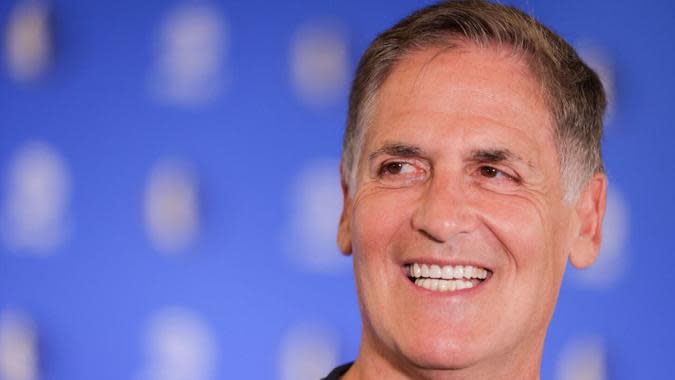
Mark Cuban
Mark Cuban is similar to Dave Ramsey in his views on debt. He says credit cards are not your friend and that you shouldn’t use them.
Cuban also advises never to borrow money to start a business. That’s an important point given how successful he has been as an entrepreneur. If Cuban, who built a billion-dollar business, says no to entrepreneurship debt, you might want to do the same.

Robert Kiyosaki
Robert Kiyosaki is the author of the well-known “Rich Dad, Poor Dad” book series. He advises leveraging debt as a tool to buy more assets, but not taking out loans for material items.
By his rules, it would be OK to take on debt to buy a rental home or purchase assets that pay dividends. But it would be a mistake to borrow money to buy a new couch or car.

Jaspreet Singh
Jaspreet Singh, founder of the popular “Diversity Mindset” YouTube channel, does not recommend borrowing money to buy things unless it’s putting cash in your pocket.
This is very similar to Kiyosaki’s advice. Both influencers believe debt can be OK if it’s making you money, but you shouldn’t assume any unless it’s putting you in a better financial position long term.
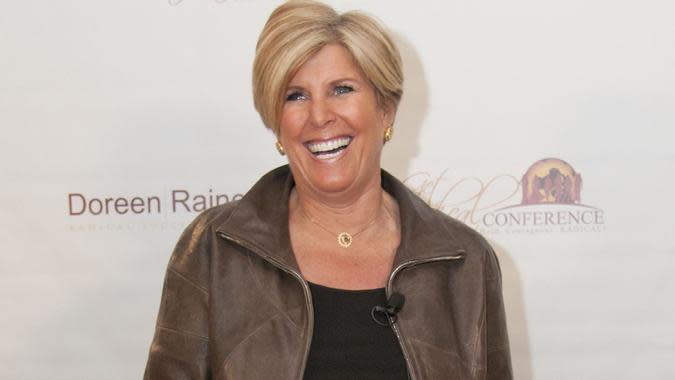
Suze Orman
Suze Orman is less definitive in her approach to borrowing money. She doesn’t say it’s categorically bad or good. Instead, Orman emphasizes the importance of being a smart borrower.
To her, the key to smart borrowing is living below your means. This means spending less than you earn every month.
Orman also says borrowers should keep their debt-to-income ratio below 35%. So if you make $5,000 monthly, spend no more than $1,750, or 35% of it, to service debt.
For You: 9 Bills Frugal People Don’t Pay

Graham Stephan
Graham Stephan is a financial influencer who’s especially popular with millennials. He uses debt as a tool to grow his wealth faster. Stephan says he owes about $4 million, but most of it is for houses that generate rental income for him.
This philosophy is similar to that of Kiyosaki, who recommends leveraging real estate investments with debt. But you should know this approach is risky. If you borrow too much money, your monthly mortgage payments could exceed your income. This could lead to you not being able to make your payments and losing your investments.
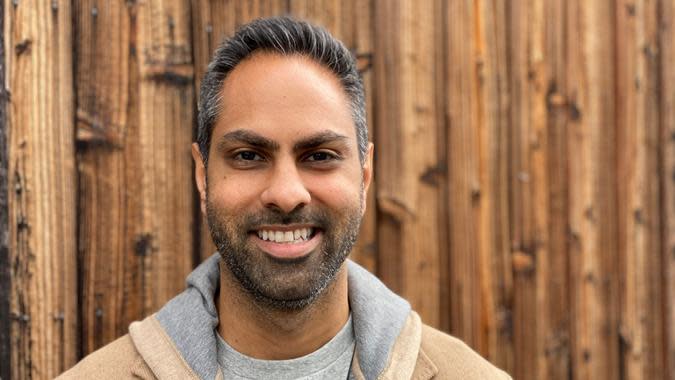
Ramit Sethi
Ramit Sethi grew to prominence as the creator of “I Will Teach You to Be Rich.” His advice is to always have a debt payment plan in place before borrowing money. According to Sethi, you should know how much your monthly payment will be, how it’s going to fit in your budget, and when your final debt payment will be before signing any borrowing agreement.
Sethi also says you should pay off high-interest loans and credit cards first — and to do so as aggressively as you can. This differs from Ramsey, who advises paying off your smallest debt first, then moving to gradually larger debts.

Applying the Experts’ Advice to Different Types of Debt
Now that you know how experts think about debt generally, you can start looking at how their advice applies to common types of loans.

Credit Cards
Many of the experts on this list are against credit cards entirely, including Ramsey and Cuban. Others don’t specifically say to avoid credit card debt, but they do recommend that you pay it off quickly once you have it. This is how Orman and Corcoran think about credit cards.
There’s a slight difference in opinion here, which means you can choose the advice that works best for your financial situation. But note that none of the experts recommend going into credit card debt just to build a credit score.
Discover More: You Can Get These 3 Debts Canceled Forever

Home Loans
The experts’ advice on home mortgages is split. Ramsey recommends paying 100% cash for your next house. But that’s not a realistic option for most homebuyers.
Stephan, on the other hand, has bought several investment properties with mortgages. Kiyosaki is also OK with using debt as a leverage tool for investing in real estate.
Once again, we have a split consensus. The group headed by Ramsey is against debt, even for buying a home. The group of Stephan and Kiyosaki say it’s OK to buy more than one home with mortgages, as long you’re smart about it.
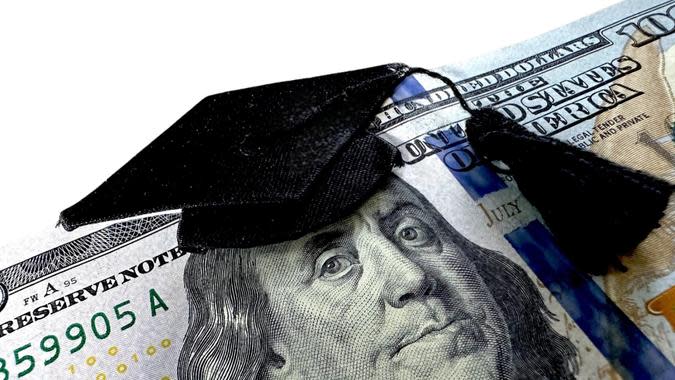
Student Loans
None of the experts featured in this article share detailed views on the question of financing an education with student loans. The closest advice you’ll find is from Corcoran, who says it’s smart to pay off student loans aggressively so you can get out from under them as soon as possible.
Singh is also OK with debt if you’re using it as a tool to put more money in your pocket. You can argue that student loans fit that criteria, as they can help you earn a degree that increases your potential income throughout your career.
But Singh might not recommend student loans unless you’re pursuing a degree that clearly improves your job prospects. For example, he might think differently about students applying for loans to pursue a degree in engineering or computer science than he does about those borrowing for a liberal arts degree.

Personal Loans
None of the experts say explicitly that personal loans are a good idea. But some have philosophies that can align with taking out a personal loan in a specific situation.
For example, Stephan is aggressive about borrowing money to pursue investment opportunities. That could mean borrowing through a personal loan in some cases.
But Ramsey is against personal loans in every situation. He says there’s never a time when you should take one out.
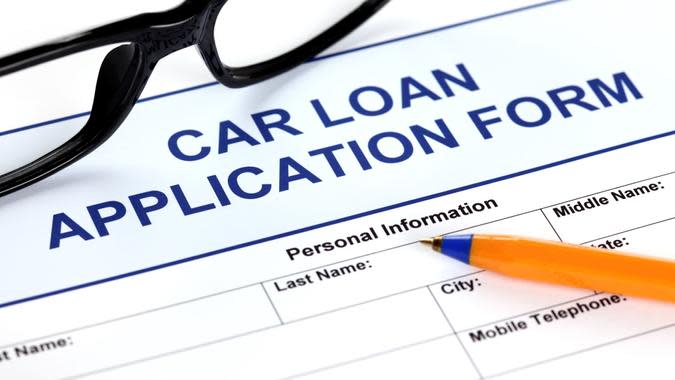
Car Loans
Some experts aren’t as vocal about whether car loans are a good option. But Ramsey says you should always pay cash for a vehicle. He’s the most insistent on avoiding debt for this type of purchase, though Cuban famously drove a cheap car long after he became wealthy.
Stephan, on the other hand, has an active car loan on his Tesla. The best advice may come from Orman, who recommends keeping your debt-to-income ratio below 35%. If you can take out a car loan while doing this, that may lead you to the middle ground that the experts don’t explicitly state.
More From GOBankingRates
This article originally appeared on GOBankingRates.com: Barbara Corcoran, Dave Ramsey and 6 Other Experts on When and How To Borrow Money
